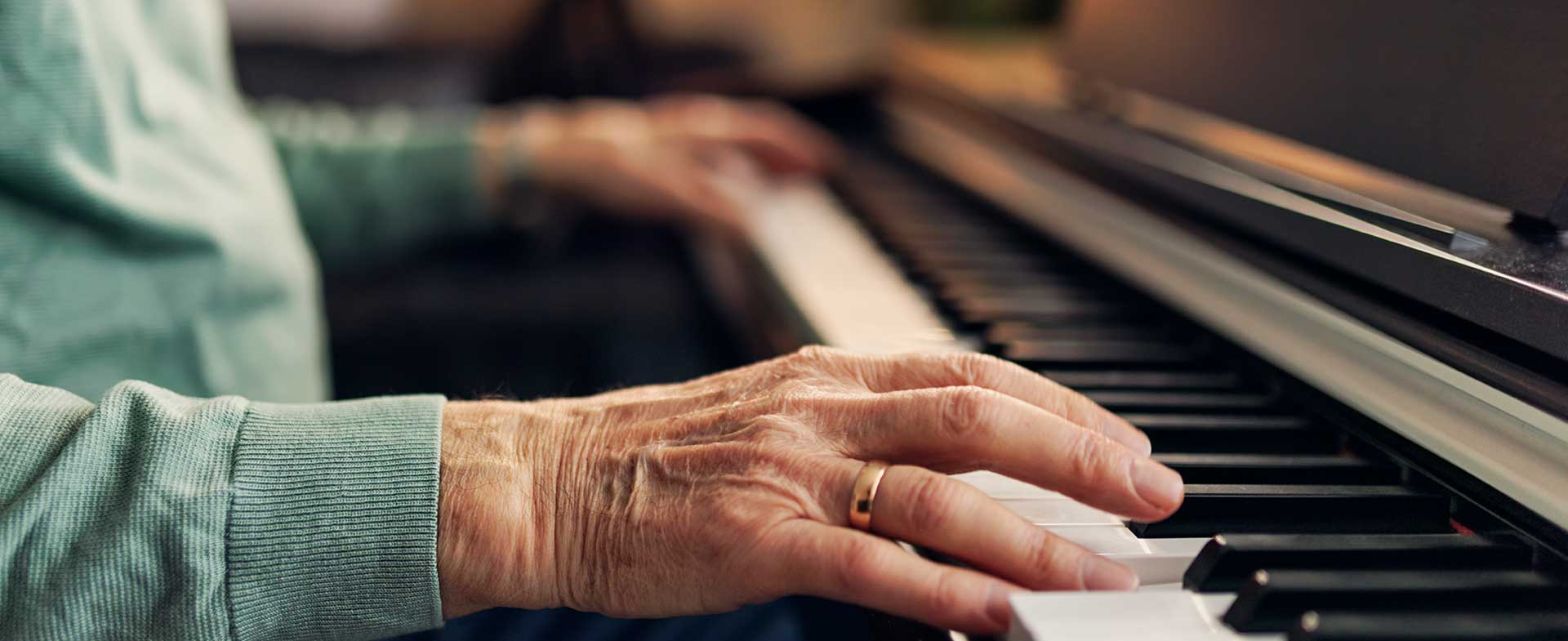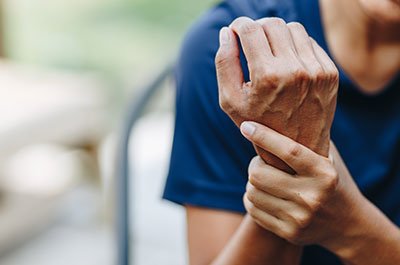You may have heard that typing at a computer all day can be detrimental to your hands. But did you know the same is true for playing piano—and any musical instrument?
“Musicians use their hands in a way that’s rigorous, precise and repetitive, which can result in injury if you’re not careful,” says Charles Day, M.D., M.B.A., an orthopedic surgeon at Henry Ford Health. “People don’t think about warming up and cooling down their hands as they do warming up and cooling down before playing a sport. With athletes, movements that lead to injury might be more forceful, but movements musicians make are more repetitive. It’s like death from 1,000 cuts instead of one big blow.”
Here, Dr. Day shares hand injuries to be aware of, how to treat them – and how to help prevent them in the first place.
1. Tendonitis.
Tendonitis is the most common injury in musicians. It occurs from overuse of the hands, causing pain and swelling. “There is more freedom in hand motion than anywhere else in the body, which means a large number of tendons must move the fingers and wrists in multiple directions,” says Dr. Day. “But all 24 of the tendons go through the wrist, which is the smallest cross-sectional area in the body. To accommodate this, your body ‘files’ your tendons in several confined tunnels around your wrist. If your tendons get swollen, they’re stuck in a tight space that was already snug to start with.”
Amateur musicians tend to develop tendonitis more often than professionals because they haven’t built up endurance. “It’s like marathon running,” says Dr. Day. “If you’ve trained, you can run long distances without injury. But if you run sparingly and suddenly run a long distance, you’re more likely to get injured.”
Treatment: To ease inflammation, refrain from playing your instrument for about four to six weeks. It’s a good idea to wear a brace to immobilize your hand. Your doctor might also recommend over-the-counter, non-steroidal anti-inflammatories (i.e., ibuprofen). If this doesn’t work, an anti-inflammatory cortisone shot can quickly calm inflammation. And if you’re still having issues, surgery is the next option.
2. Carpal (wrist) tunnel syndrome.
Carpal tunnel syndrome (CTS) is caused by compression of the median nerve, which is a major nerve that supplies movement, touch and pain to your hand, forearm and wrist. CTS is the second most common injury in musicians. “The median nerve—along with nine tendons that move all five fingers—go through your carpal tunnel,” says Dr. Day. “If you use your tendons a lot, they can get bigger over time due to repeated inflammation, just as if you work out your muscles get bigger. The tendons will then push the median nerve against the tunnel wall, inhibiting the flow of blood and oxygen to the nerve.”
CTS causes numbness and tingling in the fingers. Sometimes you’ll notice your hand tires more quickly. Your symptoms might worsen at night because blood pressure drops when you’re sleeping—resulting in even less blood flow to your hands. “Long-term lack of blood flow to the median nerve can eventually lead to irreversible damage,” says Dr. Day. “That’s why it’s urgent to treat carpal tunnel syndrome as soon as possible.”
Treatment: Wear a brace and refrain from playing your instrument for four to six weeks. “Hopefully, this period of rest decreases the size of the tendons,” says Dr. Day. A cortisone shot may also help reduce any inflammation. But surgery can be a permanent fix if the above treatment options don’t work.
3. Sprains and strains.
Strains are partial muscle tears and sprains are ligament injuries. They’re both less common than tendonitis and carpal tunnel, but if you’re constantly overreaching—extending your hand above an octave on a piano, for example—you can sprain a ligament or strain a muscle. If you’ve sustained a strain, you’ll likely feel pain when you move the strained muscle. If you’ve sustained a sprain, you may feel pain when you put pressure on the joint.
Treatment: Immobilization for four to six weeks is the first line of treatment for both sprains and strains. If the injury doesn’t heal, your doctor might order an MRI. Depending upon the results, surgery may be an option.

4. Arthritis.
Arthritis is most likely to occur in older musicians who have been playing for decades. “We don’t have the same capacity as when we were younger, even when it comes to playing an instrument,” says Dr. Day. Overuse can cause arthritis symptoms like pain, swelling and stiffness.
Treatment: Immobilization for four to six weeks can help manage symptoms, along with steroid injections to reduce inflammation. But permanent healing typically requires surgery.
Preventing Hand Injuries In Musicians
Adopting healthy habits can maintain your hands. For example:
- Stretch out your hands and warm up before playing. Stretching lets your body know you’re getting ready to play and minimizes the risk of tendonitis, and starting with light scales helps with flexibility.
- If you haven’t played in months, don’t start with an hour-long recital. Just as athletes ease into their sport, musicians should work up to playing for longer periods of time.
- Rest your hands after playing. Wear a brace afterward to let your hands truly rest. “Sometimes, without a brace, we go right back to using our hands, since we use our hands for everything,” says Dr. Day.
Reviewed by Charles Day, M.D., M.B.A., Executive Vice Chair & Chief of Orthopedic Hand Surgery at Henry Ford Health. Dr. Day sees patients at Henry Ford Hospital in Detroit, Henry Ford Medical Center – Bloomfield Township, Henry Ford Medical Center – Royal Oak and the Henry Ford Center for Athletic Medicine.



